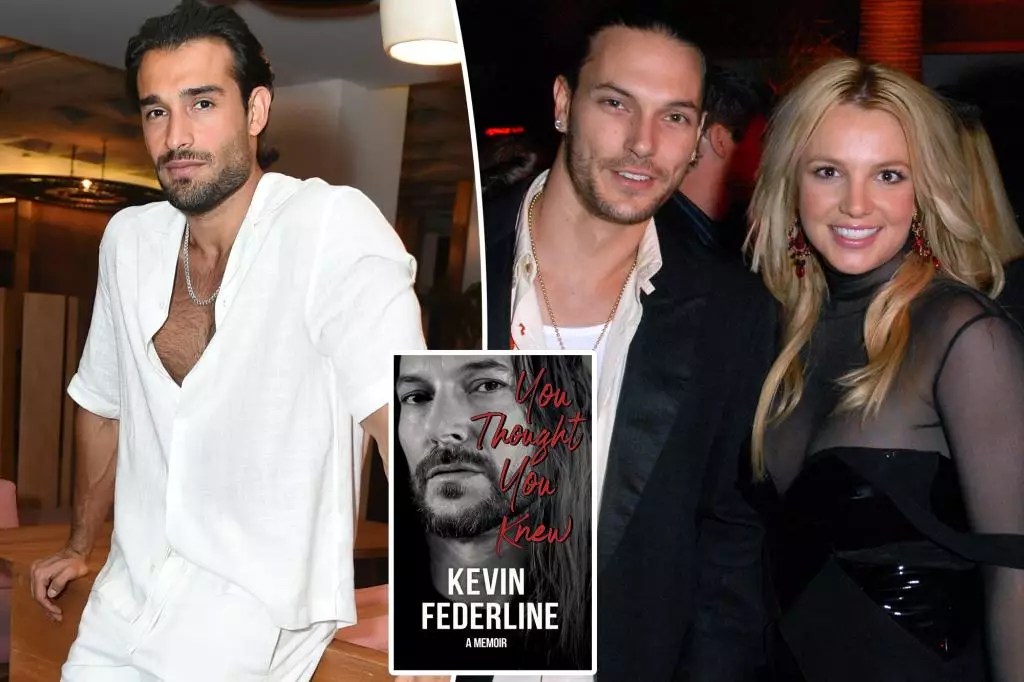In the whirlwind world of celebrity, few stories are as compelling and complex as Britney Spears’ tumultuous personal life. Yet, the recent exchange between her ex-husband, Sam Asghari, and Kevin Federline reveals how much of that chaos is fueled by public perception and personal rivalry. Asghari’s sarcastic comment labeling Federline as a “professional father” not only exposes underlying tensions but also reflects a deeper critique of how these men navigate their roles as fathers amid high-profile breakups. The remark, layered with sarcasm, subtly dismisses Federline’s upcoming memoir as a calculated effort to rebrand himself — a “how-to” guide on being a “professional father,” as seen through a lens of critique. This exchange underscores how personal disputes in the celebrity world often transcend private matters, becoming theatrical displays aimed at shaping narratives.
His remark is more than mere sarcasm; it’s a deliberate attempt to challenge Federline’s credibility and the way he positions himself publicly. The idea that a memoir could be a “guide” on fatherhood is inherently provocative, insinuating that Federline’s portrayal might be skewed or self-serving. It’s a reminder that in the realm of public figures, everything— including parenthood and personal failure — is weaponized for publicity. The messy history between Spears and Federline — from tumultuous marriage to custody disputes — is now intertwined with Federline’s attempt to redefine his identity as a “highly publicized” yet self-professed honest man. However, such public barbs also risk overshadowing genuine issues, turning personal pain into spectacle. Critically, these exchanges reveal the challenges of maintaining authenticity amid media-fueled narratives where personal vulnerabilities are commodified.
The Power Play in Fame and Family Dynamics
Kevin Federline’s upcoming memoir, “You Thought You Knew,” promises to peel back the layers of a highly scrutinized relationship, revealing intimate details about a marriage that captivated tabloids and public opinion alike. Behind the bravado lies a man articulating his journey of dreams, heartbreak, and endurance — a narrative familiar to many facing similar struggles with custody battles, financial obligations, and emotional trauma. Yet, the way Federline positions himself as a victim and a survivor is also a strategic move. In the world of celebrity, personal narratives are currency; they shape legacy and influence future relationships and public perceptions.
Federline’s history of collecting substantial child support from Spears until their sons turned 18 further complicates his image. While some may see his custody and financial arrangements as pragmatic, critics argue they are part of a power dynamic that has historically kept Spears under control, at least in the court of public opinion. His statement about revealing “highly personal” details raises questions about intent—whether it’s to tell his truth or manipulate the narrative for sympathy and relevance. His subsequent marriage to Victoria Prince and other relationships seem to serve as attempts to carve out a new chapter, yet the shadow of his past with Spears looms large.
From Spears’ side, her widely publicized struggles—including mental health episodes and her well-documented breakdown—paint her as a victim of relentless media scrutiny and societal pressure. Her relationship with Asghari appeared to symbolize a desire for stability and love amid chaos. Yet, their marriage’s abrupt end and her miscarriage in 2022 reveal ongoing vulnerabilities that add layers to her story. Her brief marriage to childhood friend Jason Alexander and subsequent relationship with Asghari exemplify a pattern of high-profile romances that are often scrutinized and sensationalized. The intersection of fame, personal pain, and media spectacle creates a delicate environment where every move is dissected, often at the expense of genuine privacy and healing.
The Damage and Power of Public Narratives
At its core, the conflict between Spears’ ex-husbands and the unfolding memoirs highlight the fragile boundary between personal truth and public spectacle. Each statement, each leaked excerpt, serves to elevate one narrative over another. Federline’s attempt to craft a memoir that “destroys assumptions” about their relationship is a bold move to regain control over his story, but it risks fueling ongoing rivalry and bitterness. Meanwhile, Spears’ fans and critics alike watch with uneasy curiosity, uncomfortably aware that these battles may distract from her journey toward independence and recovery.
What remains undeniable is that celebrity lives are never truly private, especially when intertwined with conflict, legal battles, and emotional upheavals. These public feuds serve as cautionary tales about the corrosive power of fame, illustrating how the desire for relevance can distort personal relationships into spectacle. Both Federline and Asghari’s comments reveal the desire to reassert influence and control— not merely over their reputations, but over the narrative of Spears’ life itself. In this tug-of-war, it’s clear that real pain is often overshadowed by the fight for social dominance, reminding us that behind every headline is a complex human story fraught with vulnerability and struggle.







Leave a Reply